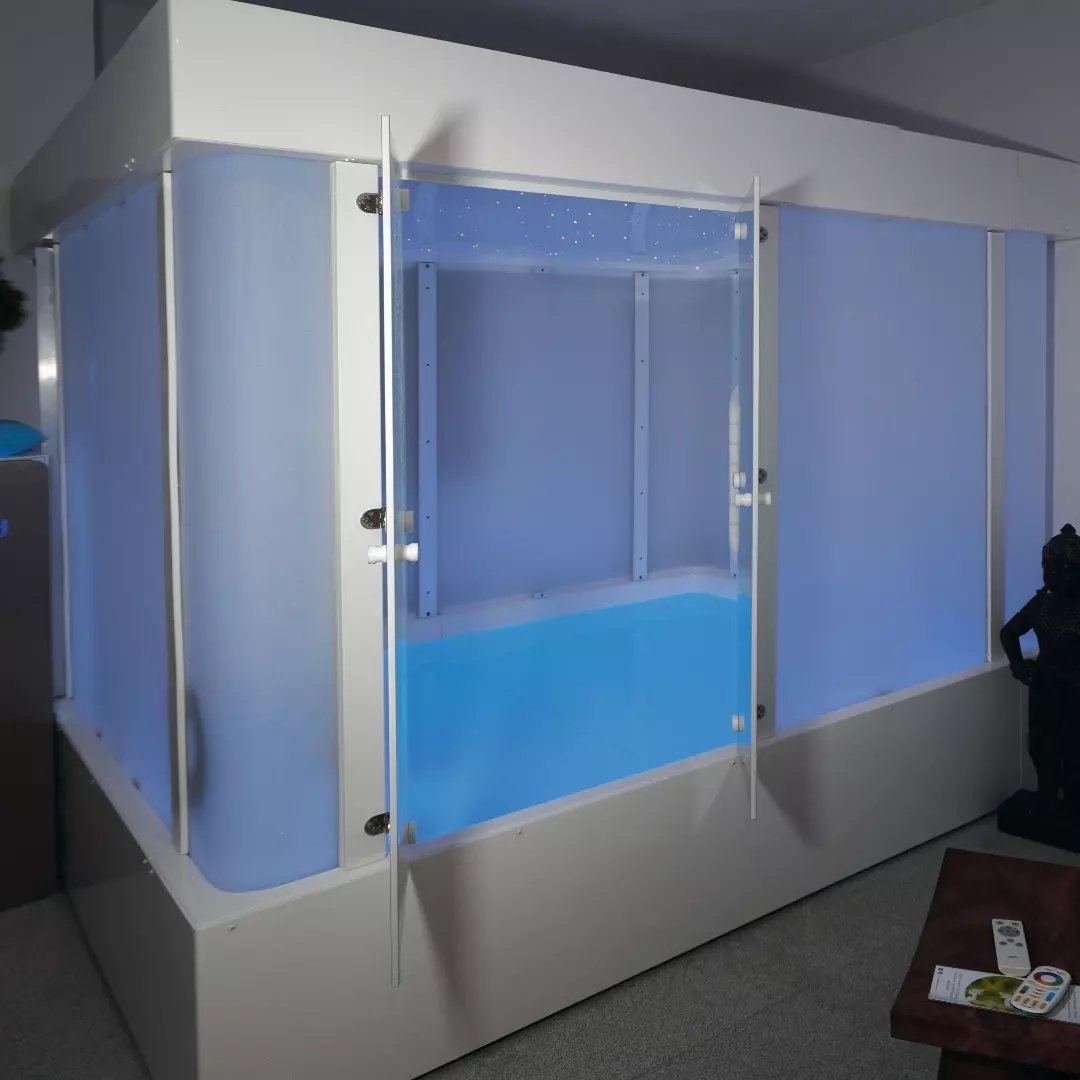Floatation-REST (Reduced Environmental Stimulation Therapy) is a sensory deprivation procedure in which subjects are immersed in an environment devoid of sound and light while floating in thermoneutral water saturated with Epsom salt. We investigate the relationship between altered states of consciousness (ASC) and their correlation with mood changes induced by Floatation-REST. In a first quantitative study, we used a crossover design with 50 subjects who experienced 60 minutes of Floatation-REST and 60 minutes of Bed-REST (a waterbed) in complete darkness. ASC were assessed with the Phenomenology of Consciousness Inventory (PCI), the Perceived Body Boundaries Scale (PBBS) and visual analog scales for time perception. Emotional changes were recorded both before and after each REST session. Compared to Bed-REST, Floatation-REST reduced perceived body boundaries and there was a subjective loss of time. Two subscales of the PCI showed stronger ASC during Floatation-REST compared to Bed-REST. The subjects felt more relaxed, less anxious and less tired after floatation-REST. A reduction in anxiety is mediated by the dissolution of body boundaries, indicating a new anxiolytic mechanism.
Mind and Matter
Altered States of Consciousness when Floating
Hanns Seidel Foundation scholarship for Helena Hruby, MSc. funded by the Federal Ministry of Research, Technology and Space (BMFTR)
Tommi Nübling
Fig. 1
Since February 2022, we have had the Floatation REST cabin developed by Floataway, our new method for inducing altered states of consciousness, at the Prana Freiburg location.
Project Team: Helena Hruby, M.Sc., Cyril Costines, M.Sc., Iraklis Pantazis, M.Sc.
Publications
Hruby, H., Schmidt, S., Feinstein, J., & Wittmann, M. (2024). Induction of altered states of consciousness during Floatation-REST is associated with the dissolution of body boundaries and the distortion of subjective time. Scientific Reports, 14, 9316. https://doi.org/10.1038/s41598-024-59642-y
Pantazis, I., & Wittmann, M. (2025). Experience after Floatation-REST: Relaxation during floating mediates the afterglow effect. Consciousness and Cognition, 130, 103836. https://doi.org/10.1016/j.concog.2025.103836
